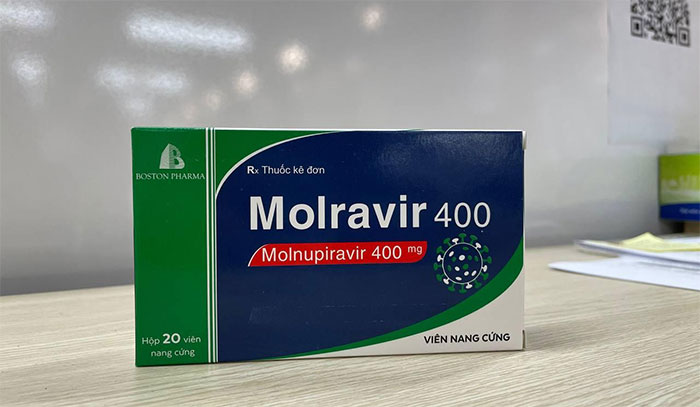Antiviral drugs are considered the “key” to coexisting with the pandemic. According to experts, these medications not only eliminate the virus quickly but also limit its spread.
Effectiveness of Molnupiravir
According to Associate Professor Do Van Dung, Head of the Department of Public Health at Ho Chi Minh City University of Medicine and Pharmacy, increasing the supply of antiviral drugs is essential for coexisting with the pandemic, as these drugs help reduce the risk of severe illness and the likelihood of spreading Covid-19.
However, the current supply of antiviral medications is limited, so priority is given to individuals with high-risk factors.
According to the Ministry of Health’s classification, individuals with diabetes; chronic obstructive pulmonary disease; particularly those with malignant hematological tumors, lung cancer; chronic kidney disease; obesity, and overweight are at increased risk of severe illness when infected with Covid-19. Therefore, these patients should be prioritized for antiviral treatment. However, antiviral drugs can also have unwanted side effects, so caution is necessary when using them.
Currently, Molnupiravir is recommended against use in pregnant women and individuals under 18 years of age, as it can affect bone health and male sperm quality.
According to Dr. Nguyen Quoc Thai, an infectious disease expert at Bach Mai Hospital (Hanoi), Molnupiravir, along with Favipiravir and Remdesivir, are the three antiviral drugs included in the treatment regimen for Covid-19 in Vietnam. Molnupiravir is utilized in a controlled pilot treatment program for mild Covid-19 cases, distributed free of charge and not sold on the market.

Molnupiravir has a mechanism that induces mutations, disrupting RNA replication.
Side Effects
Molnupiravir has a mechanism that induces mutations, disrupting RNA replication, leading to the inhibition of viral replication. Molnupiravir is indicated for patients with mild Covid-19 and is considered an important “weapon” in the treatment of mild cases at home, as it helps reduce viral load when used in the early stages of the disease, thereby decreasing the risk of severe illness and death.
To date, the use of Molnupiravir is highly regulated, and the following groups are advised against its use:
First, pregnant women: Women and men taking this medication must completely avoid pregnancy. Women must undergo a pregnancy test before starting Molnupiravir. Women should not conceive for 4 days after the last dose of this medication.
Men using this medication will affect sperm quality, so they must use effective contraception during treatment and for 3 months afterward. If a man takes the drug and allows conception during this period, the embryos may be affected. When giving birth, the babies could have genetic mutations, impacting their future lives.
Second, children under 18 years old should not use Molnupiravir: Currently, the safety of this drug in children under 18 has not been established. Additionally, animal studies have highlighted toxicity in bones and cartilage in cases of Molnupiravir exposure, leading to the recommendation against its use in this age group.
Third, individuals with liver or kidney failure may take Molnupiravir but should do so with caution.
Furthermore, common side effects of Molnupiravir include diarrhea, nausea, dizziness, and elevated liver enzymes.
The FDA has recognized that the drug does not cause concerning side effects and has indicated that it poses a low mutation risk. However, the FDA advises against prescribing Molnupiravir to pregnant or breastfeeding women and has not approved it for hospitalized patients or individuals under 18.
Meanwhile, some global health experts are concerned that Molnupiravir may cause mutations in cells, harming users’ bodies. The Indian Council of Medical Research (ICMR) has yet to include Molnupiravir in its list of Covid-19 treatment drugs due to concerns about side effects such as gene mutations and damage to muscles and bones, which could pose risks during pregnancy and to children.


















































